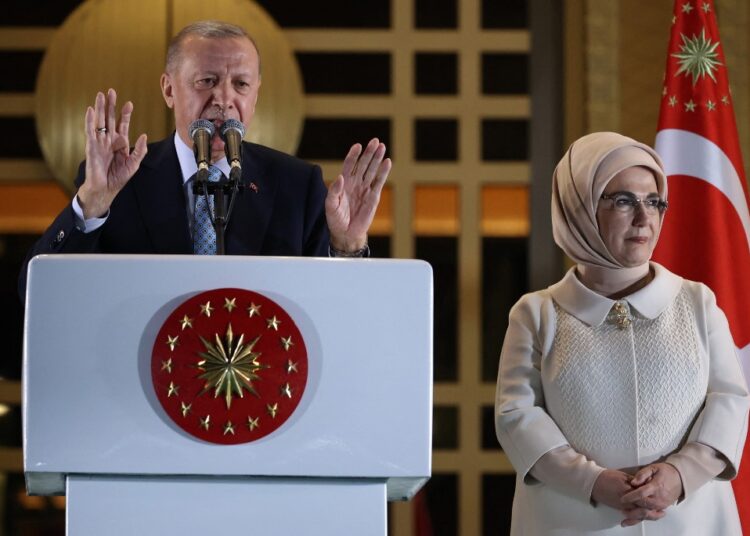Abdullah Bozkurt/Stockholm
A revelation by a regime insider has shed light on how Turkish President Recep Tayyip Erdogan has amassed billions of dollars in family wealth during his two-decade rule, which has been marked by rampant corruption in his administration.
Ali Yeşildağ, a long-time member of a gang that helped run corrupt schemes on behalf of Erdogan, revealed in a video posted on YouTube on May 5, 2023 that Erdogan, then prime minister, pocketed $1 billion in a kickback scheme from an airport management tender back in 2007.
The money was given to Erdogan by Turkish businessman İbrahim Çeçen, who fraudulently won the government tender for the operating rights of Antalya Airport for his company İçtaş, part of İbrahim Çeçen Yatırım Holding (IC Holding), which participated in the tender with its German partner Fraport AG.
Çelebi Holding, which had been operating Antalya Airport, Turkey’s second largest, until it was put up for bid to renew the contract on April 12, 2007, was fraudulently excluded from the tender by the State Airports Management General Directorate (DHMİ). Yeşildağ, who was intimately involved in the tender, disclosed previously unknown details about how Çelebi was prohibited from competing in order to award the contract to the İçtaş-Fraport joint venture.
Yeşildağ was hired by Canan Çelebioğlu, the president of Çelebi Holding, through a friend named Enis, who promised him $30 million in consultation fees if Yeşildağ could secure the renewal of contract for another 15 years for the holding, using his contacts with Erdogan. As the Turkish airport ground services provider, Çelebi was a reputable firm that was operating other airports in Turkey as well.
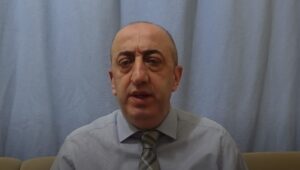
Yeşildağ is a younger sibling of brothers Hasan and Zeki Yeşildağ, both of whom has been working closely with Erdogan for decades. He said he found out the tender was being followed by Ali İhsan Arslan, also known as Mücahit Arslan, a close confidant of Erdogan, and that he told Arslan he had been hired by Çelebi to secure the contract and asked for his help. Arslan explained that his boss, Erdogan, had different plans for the contract in order to facilitate the receipt of a huge amount of money from kickbacks and told him to provide insider information from Çelebi Holding during the preparations for the tender.
The double-dealing Yeşildağ had managed to learn that Çelebi was planning to offer $4 billion for the contract with the ability to offer up to $5 billion. Arslan also asked Yeşildağ to find out who Çelebi’s foreign partner was so that he could approach them on behalf of Erdogan and convince them to stay out of the competition. But Çelebi Holding was keeping the negotiations with foreign partners secret even from Yeşildağ, who was hired as a consultant.
To exclude Çelebi from the auction, Yeşildağ proposed to Arslan that they make several documents that were required to be filed in advance by firms to qualify for competing in the tender disappear. That is exactly what happened when the relevant commission announced that Çelebi’s offer was excluded from the bidding due to the lack of proper documentation.
As a result, on April 12, 2007 İçtaş-Fraport clinched the contract for 2.37 billion euros ($3.19 billion), when Çelebi had been prepared to offer $4 billion with the option of going as high as $5 billion. According to Yeşildağ, the difference of nearly a $1 billion was paid to Erdogan under the table. The government’s loss of revenue was nearly $2 billion considering that Çelebi was ready to pay up to $5 billion for the contract after the sealed bids were opened and the bidders were invited to increase their offers.
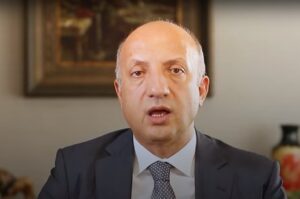
The decision to exclude Çelebi from the tender came as a shock to the holding, which had already invested a substantial amount of money and had been operating the airport for years. Çelebi management was confident that their bid couldn’t be beat and even made preparations for a celebration for securing the contract. What they didn’t know was that Yeşildağ was actually working for Erdogan, who decided to award the contract to his buddy Çeçen in exchange for a billion-dollar kickback.
Yeşildağ said in his video that the money promised to him by Arslan was never paid and that he was cheated by his brothers in other contracts as well. He decided to turn against Erdogan and his brothers and started revealing secret deals made behind closed doors to enrich Erdogan and his inner circle.
Çelebi’s lawyers filed a lawsuit challenging the tender, but the suit was dismissed under pressure from the government. What is more, public prosecutor Hüseyin Kocabey launched a criminal investigation into Çelebi management for alleged fraud on an accusation that the company inflated its annual turnover to 100 million euros from 98 million to be eligible to compete in the tender. The investigation was only intended to intimidate Çelebi and force its managers to stop pursuing the Antalya Airport tender. Prosecutor Kocabey was rewarded for his performance by the Erdogan government and made a judge at the Supreme Court of Appeals.
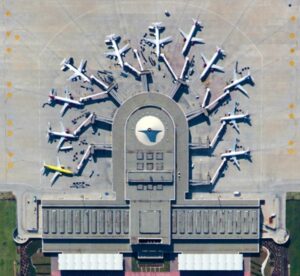
Mehmet Tekin, the head of DHMİ, who presided over the tender commission, was faced with a criminal complaint filed by the main opposition Republican People’s Party for allegedly rigging the tender. But the Erdogan government protected him from legal problems, and the complaint was dismissed. In the 2011 elections he was a nominee for a seat in parliament on the ruling Justice and Development Party ticket but failed.
Antalya Airport has a capacity of 35 million passengers annually, and the government plans to expand it to 80 million following a record number of 31.2 million passengers, the bulk of whom came from overseas flights, passing through the airport last year. Currently, 173 airlines from 52 countries use the airport to fly to and from 213 destinations. İçtaş sold its shares in the joint venture to TAV Airports (TAV Havalimanları) in May 2018 for 360 million euros.
In December 2021 the Erdogan government launched a new tender for the operation and expansion of Antalya Airport long before the current contract was set to expire. The new contract for 25 years was awarded to the TAV-Fraport joint venture for 8.6 billion euros.
According to Yeşildağ, Erdogan has accumulated several hundred billion dollars in wealth through such bribes and kickbacks during his two-decade rule. In graft probes that were made public in December 2013 by Istanbul prosecutors, investigators discovered similar kickback schemes involving Erdogan and his inner circle. They also found that Erdogan had stashed millions in cash in huge vaults built in the basement of villas he owned in Istanbul.
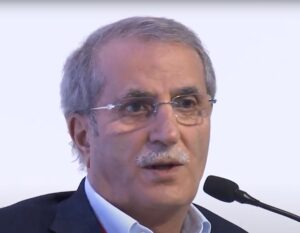
In the same probe, Çeçen was one of the key suspects who were investigated for multiple crimes including fraudulent business practices in connection with Erdogan. The criminal investigation was derailed by Erdogan after it was made public, and Çeçen and other cronies were saved from legal troubles.
There are multiple claims about the size of Erdogan’s fortune. International hacking group Anonymous posted a tweet on December 29, 2020 claiming that Erdogan had as much as $350 billion in ill-gotten gains and mocked the Turkish president by asking which banks he wanted to use to launder it.
The president was reportedly concerned when a bill was introduced in the US House of Representatives on October 16, 2019 as part of a proposed sanctions package against Turkey under the title of “Protect Against Conflict by Turkey Act.”
The US Senate version of the bill was introduced on October 17, 2019 under the title of “Promoting American National Security and Preventing the Resurgence of ISIS Act of 2019.” Both bills asked the director of national intelligence to submit to the appropriate congressional committees a report on the estimated net worth and known sources of income of Erdogan and his family members.
The relevant part of the bill reads: “Not later than 120 days after the date of the enactment of this Act, the Secretary of State, in consultation with the Secretary of the Treasury and the Director of National Intelligence, shall submit to the appropriate congressional committees a report on the estimated net worth and known sources of income of Turkish President Recep Tayyip Erdogan and his family members (including spouse, children, parents, and siblings), including assets, investments, other business interests, and relevant beneficial ownership information.”
Erdogan’s much-rumored secret accounts in Swiss banks had already been reported by the US Embassy in Ankara in a cable to Washington. The diplomatic cable was leaked by Wikileaks in November 2010.

